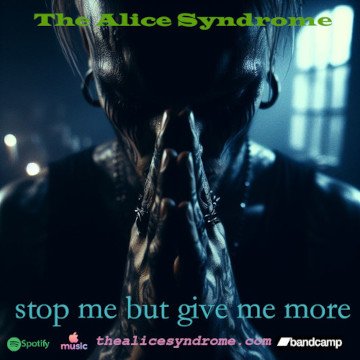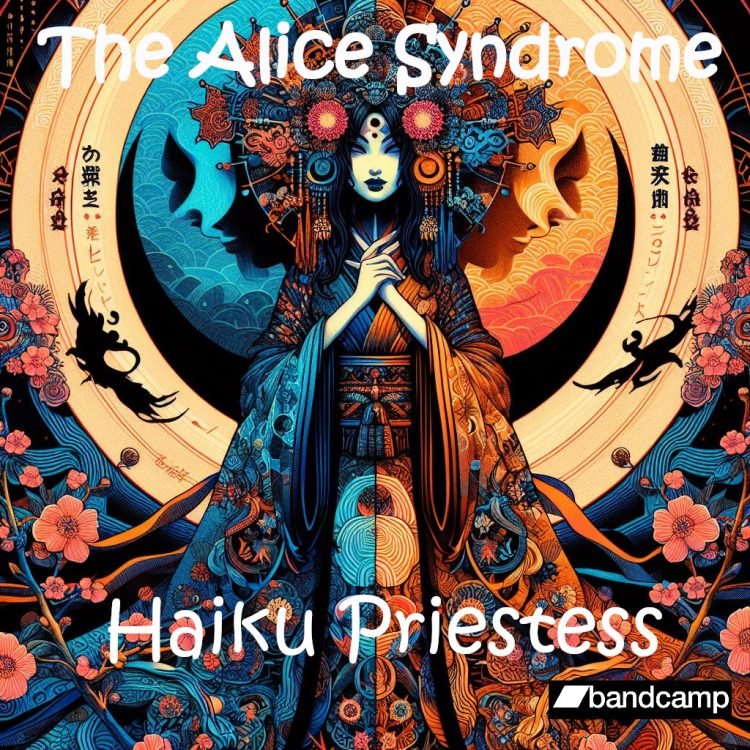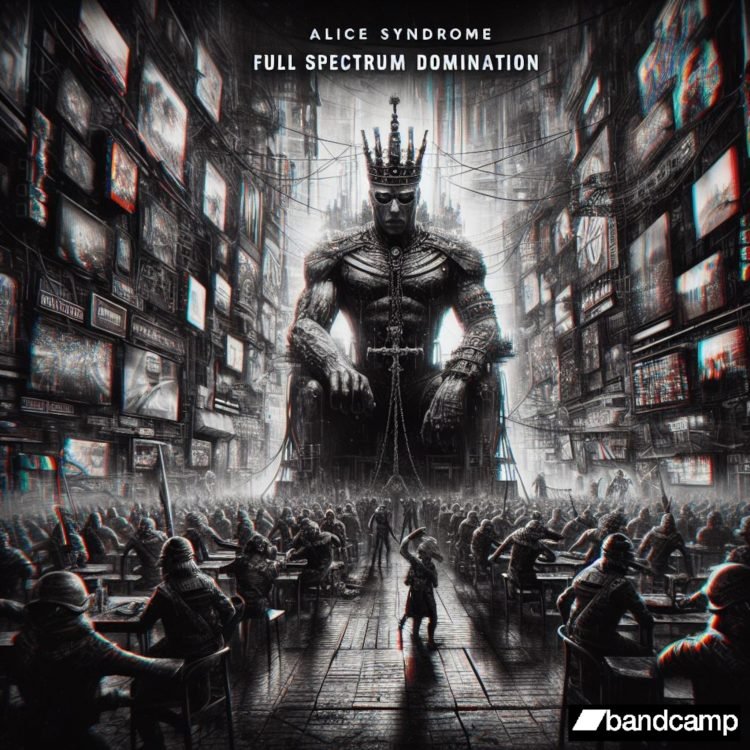
Welcome to George’s blog. I play keyboards in the Alice Syndrome, and I’m also very interested in psychology, spirituality and self-transcendence. Groovhead tends to write all our lyrics, which always touch on subjects that hit deep into my interests.
Stop me but give me more – Bandcamp
Stop me but give me more, is a song about hearing voices. I love it because of this. 17 years ago, I started hearing voices. That was the beginning of quite a journey. Happy is the man who loves his voices.
Hearing voices is a common phenomenon that occurs in different cultures and contexts. However, many people are afraid of admitting that they hear voices because they think it is a sign of insanity, especially schizophrenia. This makes it a taboo topic that is rarely explored in the media or other forms of expression. One of the challenges is that hearing voices is not well understood, and people tend to avoid talking about it.
One of the songs that addresses hearing voices is Hearing Voices by Suicidal Tendencies, a band that pioneered the fusion of hardcore punk and metal in their 1983 debut album. The song depicts the experience of a person who has schizophrenia and hears voices that urge him to commit violent acts. The song has a fast pace, harsh vocals, and heavy guitars that convey the intensity and distress of the voice hearer. (Suicidal Tendencies, 1983)

Hearing voices, also known as auditory verbal hallucinations, is a phenomenon that can occur in various contexts and is not necessarily a sign of mental illness (Mind, n.d.). In fact, many psychologists are proposing ideas about human multiplicities, which suggest that we all have different parts or sub-personalities within us that may express themselves in different ways (Good Therapy, 2021). One of these ways may be through hearing voices that represent different aspects of ourselves, such as our inner critic, our inner child, our protector or our guide. These voices may have different origins, such as trauma, stress, bereavement, spiritual experiences, effects of psychedelics, or physical factors (Mind, n.d.).
Some therapies, such as Internal Family Systems (IFS) therapy, offer great hope of enabling the individual to reintegrate negative voices in a positive and supporting way. IFS is based on an integrative model that combines elements from different schools of psychology and posits that each part possesses its own characteristics and perceptions (Good Therapy, 2021). IFS therapy aims to help the individual access their core self, which is the source of healing and compassion, and to establish a harmonious relationship with their parts. By doing so, the individual can reduce their distress and increase their wellbeing (Good Therapy, 2021).
My personal journey with my voices has been transformative and empowering. I used to be tormented by them, as they constantly threatened to end my life. However, I discovered a way to work with them, rather than against them, by applying a technique inspired by Jungian shadow work.
According to Jung (1958), the shadow is the repressed part of ourselves that we find unpleasant or intolerable. It contains both negative and positive aspects, but we tend to label them as all bad and try to avoid them. Shadow work is the process of acknowledging and integrating the shadow so that we can become more whole and authentic (Bertholo, 2013). By doing shadow work, I was able to understand the origin and purpose of my voices, and to communicate with them in a respectful and compassionate way.
I realized that they were not my enemies, but parts of myself that needed healing and acceptance. I invited them to join me in creating an inner support network, where we could help each other grow and thrive. To my surprise, even the most hostile and demonic voices agreed to drop their negativity and become part of my team. Nowadays, I no longer fear or hate my voices. They are my inner allies, who offer me guidance, encouragement, and wisdom. I want to share this message of hope with anyone who struggles with their voices: You are not alone, and you can transform your relationship with them.
References
Bértholo, Joana. (2013). The Shadow in Project Management. Procedia – Social and Behavioral Sciences. 74. 358–368. 10.1016/j.sbspro.2013.03.007.
Cleveland Clinic. (2020). Auditory Hallucinations: Causes, Symptoms & Treatment. https://my.clevelandclinic.org/health/symptoms/23233-auditory-hallucinations
Good Therapy. (2021). Internal Family Systems Therapy. https://www.goodtherapy.org/learn-about-therapy/types/internal-family-systems-therapy
Jung, C. G. (1958). The undiscovered self. Little, Brown.
Mental Health Foundation. (n.d.). Hearing voices. https://www.mentalhealth.org.uk/england/explore-mental-health/a-z-topics/hearing-voices
Mind. (n.d.). Hearing voices. https://www.mind.org.uk/information-support/types-of-mental-health-problems/hearing-voices/about-hearing-voices/
Suicidal Tendencies. (1983). Hearing Voices. On Suicidal Tendencies [Album]. Frontier Records.




























































